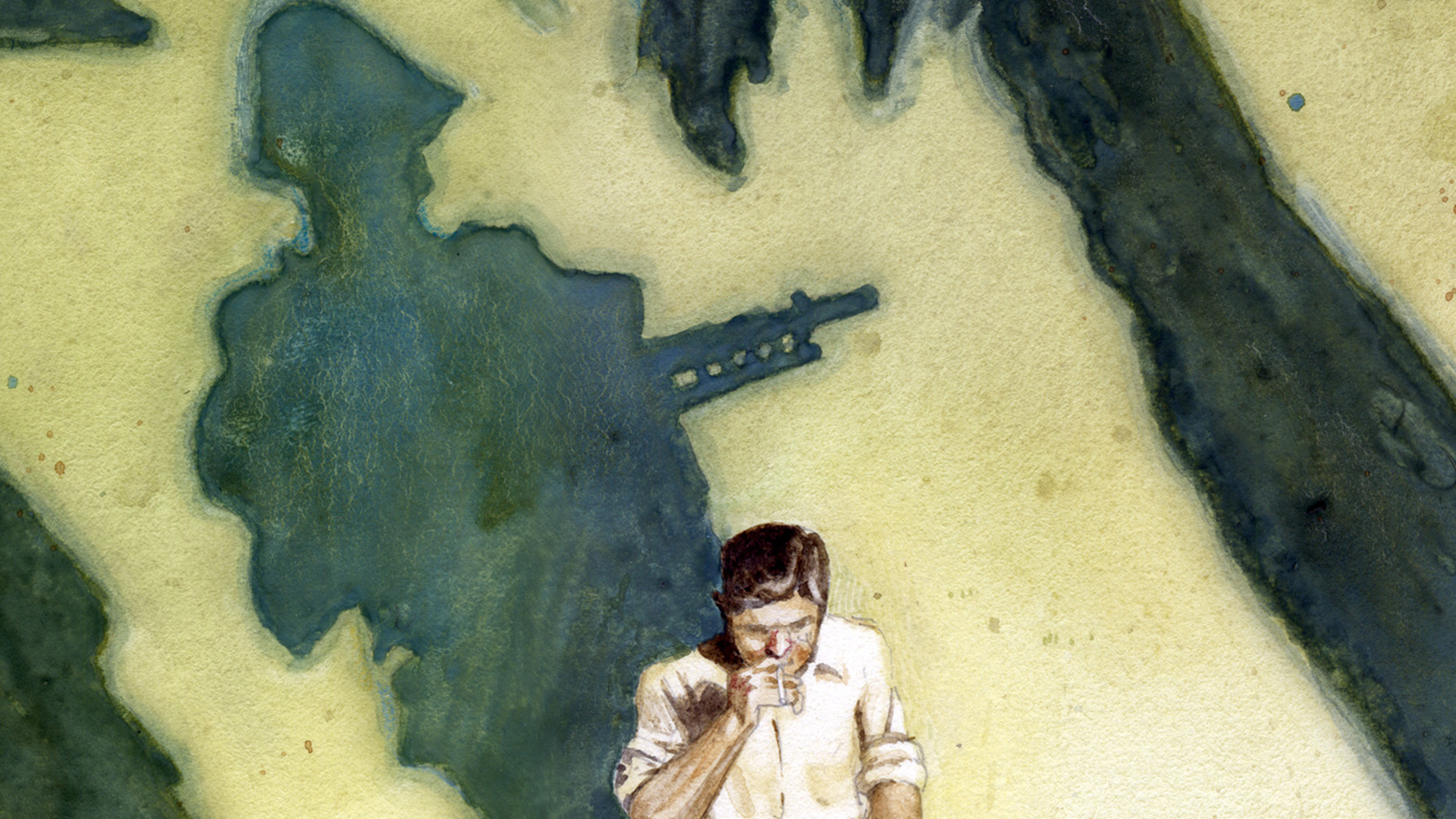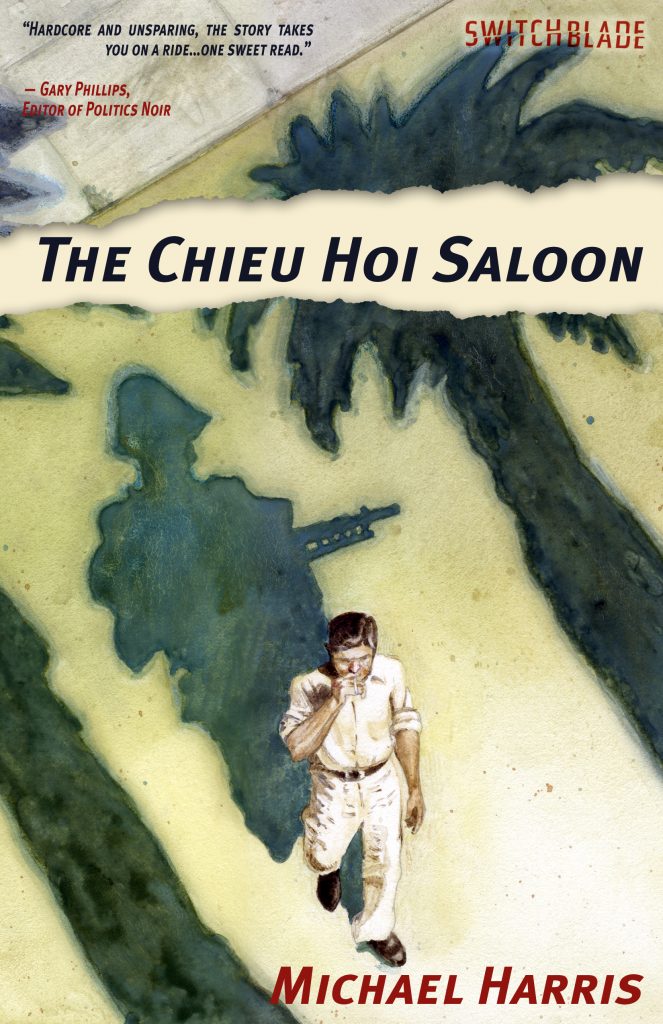Seattle Examiner
By Ray Murphy
December 30, 2010
Pacific Northwest readers, drenched and shivering in a literary winter of gray sameness, would do well to slip south of the 17th Parallel, or at least the 710 freeway, and smuggle back Michael Harris’ The Chieu Hoi Saloon (PM Press, 2010).
Chieu hoi translates roughly as “open arms,” but like a canny survivor of the civil war in which it originated, the term seems to have taken two identities. Our protagonist, Harry Hudson, ex-soldier, ex-husband and father, now hack copy editor in SoCal’s grittiest beach city, uses it as a verb: when he chieu hois, as so he often does, he punts. Indeed, early on, the novel reads like the story of a man who has come from a small town in Oregon to Long Beach to follow in that city’s weaving civic footsteps, that is, to surrender — in unspectacular if unpredictable fashion — to internal divisions. But the term also can function as a noun: among the thousands of North Vietnamese who fled south as defectors from the Viet Minh were the infiltrators known as Chieu Hois, who would comprise the fifth column of the Viet Cong. As much as Hudson’s past threatens to undo him, it also serves as his clandestine strength.
As with most of us, the singular event that shapes Harry Hudson doesn’t exist. “It was like triple exposure,” he reflects. Instead of the usual, carefully cropped, no-exposure digital image of “seminal event” clipped to the contemporary protagonist’s pocket, the“it” here is a unique nexus of experience, and memories and dreams of experience, that is not so much recollected as continually remade. What causes Harry to be Harry is none other than Harry, evolving. His mother’s death from cancer when he’s seven; his perilous memory of his two-year-old daughter at the edge of a swimming pool; the rueful affair he conducts in his imagination with a Japanese girl in high school; all this blends, and is blended into Harry’s moment of panic in Vietnam, as he ruins an ambush by killing an unarmed Vietnamese civilian on a bicycle. “He opened his mouth, in Long Beach, in Vietnam, in all those other places, and nothing came out.”
Oh, but it does. The Chieu Hoi Saloon is less a story (thank god) than a portrait, and less a portrait than a series of quietly magnificent, strobe-lit fragments showing us glimpses of a life splashing apart and coming together. In one flash we see Hudson’s wayward desire as he studies a swingers’ newspaper in his rented room at the Reef, and in the next, guilt about his abandoned marriage and lost daughter. In another flash, Hudson leverages guilt as if practicing a technique (CBT — Catholic Behavioral Therapy?) to control his lust, and in yet another flash, this technique cheapens the genuine pain he feels so that his guilt becomes too attenuated to combat desire, whereupon he’s off to the swingers’ club in La Mirada… No wonder Harry Hudson reads compulsively about the Civil War. He’s in one. He is one. He’s in one and is one, both double agent and conflict. The novel’s fractured, incremental, stuttering form creates an organic momentum as eloquent as it is uncertain, like a peasant’s bicycle built from spare parts gliding into gunfire.
For not only is this guy a veteran who hasn’t made it all the way home, and an Oregonian who’s never quite left. He’s literally a stutterer. And as such, Hudson occupies a precarious Demilitarized Zone between silence and speech. The voice he inherits, that of his logger father, makes him susceptible to biases that don’t hold up in the crucible of experience. The voice to which he aspires, that of a small-town newspaper columnist named Vance Foster, which he hears as “nothing less than the voice of the greater world,” threatens to reduce him to canned language — you pull for Harry to go right on stuttering. In college, Hudson gets speech therapy from one Doctor Richardson, only to realize that the doctor’s method “had a built-in trap:”
The better he spoke, the more he was tempted to speak automatically, the way normal people did, and that was fatal. The creature woke up, reached out an exploratory claw and touched his throat.
As ever, normalcy stirs the insurgent within, the stutter, the tongue’s Viet Cong, undermines Hudson, and at the same time, saves him from conventional speech. If Harry’s world is sordid, it’s rich with newsroom repartee , with slang from Nam to Topeka to Long Beach Boulevard,
What’s so engrossing about this character is
not that he’s bent on resolving his conflict, but that he’s bent on
living with it. Free of narrative predestination, Henry Hudson is a
survivor, not only of conflict but of literary form, all the way to the
end. With all his crazy troubles, he’s not quite like you and me. But
we, with our lesser crazy troubles, have in Harry a fictional peer for
whom we feel genuine respect.
And in Michael Harris, we have a writer that readers unabashedly can champion.







